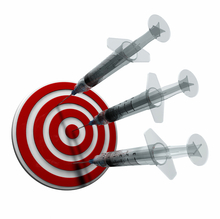After receiving a vaccine intramuscularly, some horses experience local muscular swelling and soreness or transient, self-limiting signs including fever, anorexia and lethargy.
Severe reactions at sites of injection can be particularly troublesome, requiring prolonged treatment and convalescence. Systemic adverse reactions (such as urticaria, purpura hemorrhagica or anaphylaxis) can also occur. Other systemic adverse reactions have been anecdotally reported.

Vaccination advice for horse owners
Adverse reactions are not always predictable and are inherent risks of vaccinating horses.
When horses are vaccinated, the vaccine lot and serial numbers should be noted in horses’ vaccination records. The ability to provide this information when reporting an adverse reaction will facilitate an investigation.
Adverse reactions are not always predictable and are inherent risks of vaccination. Therefore, it is recommended that horses not be vaccinated in the 2 weeks prior to shows, performance events, sales or domestic shipment. Some veterinarians may elect not to vaccinate horses within 3 weeks of international shipment.
Injection site selection should include consideration of potential adverse reactions. Injection in the gluteal muscles/hip region is not recommended, as gravitational drainage along fascial planes can be obscured. Should an abscess develop, considerable tissue damage can occur and result in eruptions in undesirable locations with lesions that require prolonged time to heal.
The interval from vaccination to scheduled event or a predictable risk of exposure should be sufficient for:
- Generation of a protective immune response to vaccination.
- Recovery from unexpected adverse vaccination reactions that might otherwise interfere with the horse’s performance or health prior to, or during shipment.
It should be recognized that:
- Administration of vaccines containing multiple antigens/adjuvants at the same time may increase the risk of adverse reactions.
- Safety and efficacy data are not available regarding the concurrent use of multiple vaccines.
- Administration of MLV and killed vaccines in the same location is discouraged as adjuvants may inactivate the MLV. Therefore, veterinarians may elect to use a staggered schedule when multiple products are to be administered.
Vaccines should always be administered by, or under the direct supervision, of a veterinarian, as the possibility of adverse reactions (including anaphylaxis) exists with the administration of any vaccine.
